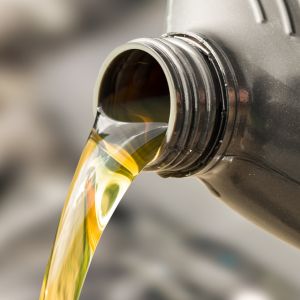Keeping the engine running smoothly and extending its lifespan requires routine oil changes, which are an essential part of car maintenance. The importance of regular oil in a car performs various crucial tasks like lubricating, cleaning, and cooling down the engine. In addition to reducing engine power and protection, dirty oil can also increase friction, wear and tear, poor fuel economy, and emissions.
So, in the long run, regular oil changes will save you money by preventing expensive repairs by removing contaminants, enhancing performance and fuel efficiency, and extending engine life. Notably, choosing the right oil change schedule for your car requires consulting the owner’s manual or getting advice from a qualified mechanic.
The importance of regular oil changes for your vehicle

In order to keep the engine healthy and in good working order, regular oil changes are an important component of vehicle maintenance. So, the importance of regular oil is vital. Your car’s oil performs a variety of crucial tasks, such as lubricating the engine’s moving parts, cleaning the engine, and assisting in keeping down its temperature.
- Lubrication: Oil reduces friction and wear by acting as a lubricant between the moving parts of the engine. This keeps the engine running smoothly, lowers the temperature, and increases engine longevity.
- Cleaning: As oil flows through the engine, it picks up dirt and debris, which helps to clean the engine. If not removed, these particles can harm the engine’s moving parts because they contaminate the oil over time. Regular oil changes aid in removing these impurities and maintaining a clean engine.
- Cooling: Oil aids in transferring heat away from the engine. It is less efficient at dissipating heat when the oil gets soiled or contaminated. This can cause the engine to overheat and lead to serious damage. By performing routine oil changes, you can make sure that the engine is always using clean, fresh oil that can efficiently dissipate heat.
- Performance: The performance of the vehicle is also enhanced by regular oil changes. With clean oil, the engine can run more efficiently, which can lead to better fuel economy and increased power. Additionally, routine oil changes can help the engine last longer, saving you money in the long run by preventing expensive repairs.
Manufacturer recommendations state that you should change the oil frequently, typically every 5,000 to 7,500 miles or every 6 to 12 months, whichever comes first. Depending on usage, it might even occur more frequently in some circumstances. To ensure you use the right kind of oil for your particular vehicle and to find out the manufacturer’s suggested oil change intervals, check your vehicle’s owner’s manual.
What happens if we don’t regularly change the oil in our car?

If you don’t change the oil in your car regularly, it can have several negative consequences for your engine and the overall performance of your vehicle.
- Reduced Lubrication: As engine oil gets dirty over time, it loses its effectiveness at effectively lubricating the engine’s moving parts. This may result in more wear and friction on the components, which could damage them and necessitate expensive repairs.
- Increased Engine Wear: Using dirty oil can also raise the engine’s operating temperature, which speeds up the engine’s natural ageing process. This may result in the engine lasting less time and requiring more expensive repairs or replacements.
- Reduced Fuel Economy: A poorly operating engine can result in reduced fuel economy. You will need to fill up your gas tank more frequently as a result, which will cost you more money.
- Increased Emissions: An engine that has received poor maintenance may also emit more emissions, which are bad for the environment.
- Reduced Engine Power and Acceleration: When the oil in the engine is dirty, debris can build up inside the engine and reduce engine power and acceleration.
- Reduced Engine Protection: In addition to replacing the oil, an oil filter should also be changed. If the oil filter is not replaced, it may clog and lose its ability to filter the oil. This may result in the buildup of dirt and other debris in the oil, which could harm the engine.
It’s importance of regular oil to keep in mind that not all cars are created equal, and some might need their importance of regular oil changed more frequently. The right oil change schedule for your car should be determined by consulting the owner’s manual or by asking a qualified mechanic.
Frequently Asked Questions
Q1. Why is it important to change your oil regularly?

Ans: Importance of regular oil changes are crucial because it keeps the moving parts of your engine cool and lubricates them. The oil gradually loses its ability to lubricate and cool as a result of contamination from dirt, debris, and engine metal particles. By ensuring that the engine always runs with clean oil, importance of regular oil changes can help to maintain the engine’s performance and extend its life.
Q2. What happens if you don’t regularly change the oil?
Ans: The contaminants in the oil can harm the engine’s moving parts if you don’t change the oil on a regular basis. This may cause the parts to experience more wear, heat, and friction, which could ultimately result in engine failure. Additionally, if the oil is dirty, the engine will likely run less effectively, which will result in poor fuel economy and more emissions.
Q3. Does changing the oil improve car performance?
Ans: Yes, changing the oil can improve car performance in several ways. Regular oil changes keep the engine cool and lubricated, which can lessen friction and wear on the moving parts. This can make the engine run more smoothly and effectively, which can enhance both performance and fuel efficiency.
Additionally, importance of regular oil changes can aid in clearing the engine of contaminants and debris, which can enhance engine performance and acceleration. Generally speaking, changing the oil is a vital component of routine car maintenance that keeps the engine in good working order.

